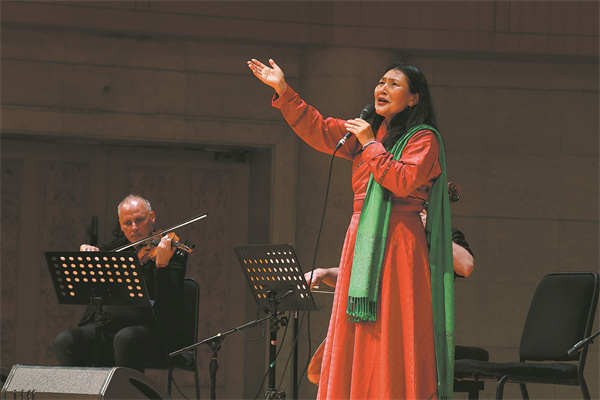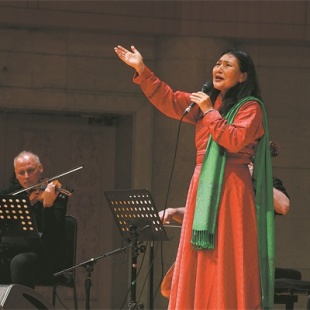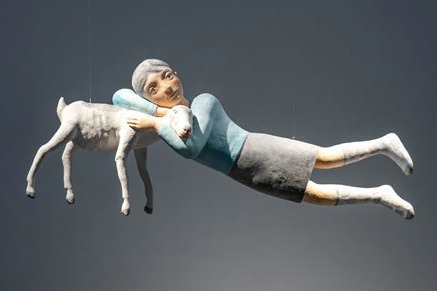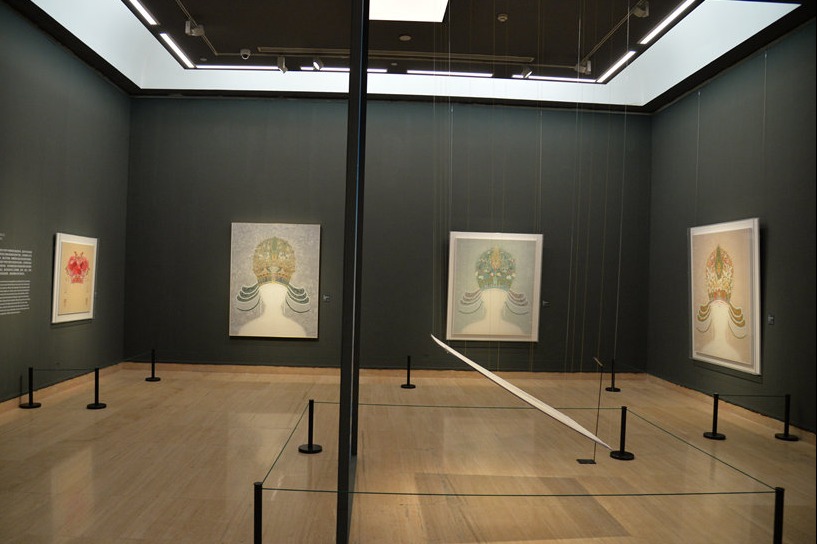Singer captures the voice of the wind
Swaying grasslands provide perfect setting for enthralling sounds of solitude, Chen Nan reports.


"More and more people are realizing that we should stop, cherish our inner needs, and learn to breathe and sing. Maybe we're too accustomed to the same sounds, the same melodies, but in the vastness of the universe, there are all kinds of sounds. Sing loudly, don't be afraid of singing 'wrong'," Urna says.
"Even if you're just humming at home, it's still wonderful. Singing is like a key that belongs only to you — a key that can unlock your true self. This is something others can't give you."
Urna notes that she didn't deliberately arrange or plan this new album, which is the culmination of ideas she's nurtured for over 20 years.
"What surprised me was that many people have written to me, telling me that my singing helps their babies fall asleep. It's quite magical. So, this album featuring pure voice may contribute to calming babies," she laughs.
The album features 14 songs and pays tribute to Urna's homeland and family. It includes traditional Mongolian folk songs, as well as original pieces written by her.
To support the album, Urna has toured seven Chinese cities this July, including Beijing, Shanghai, Nanjing and Chengdu, alongside her musician friends: Hungarian violinist Zoltan Lantos, Spanish cellist Sergi Boadella, and Colombian percussionist Toby Senior Vega.
"I felt the energy of distant legends and ancient rituals from her music," said one audience member after watching Urna's concert in Beijing on July 3.
"There were many unexpected surprises in her show, and I must say she is a master. The sound of the grassland tells the story of the grassland," said another attendee after watching Urna's concert in Chengdu, Sichuan province, on July 13 — the final stop of her latest tour. "Her pure and ethereal voice awakened my memories."
Born into a family of herders, Urna learned hundreds of traditional Mongolian songs from her grandmother and parents. As she recalls, her grandmother was particularly skilled at singing. When Urna was little, she would accompany her grandmother to the grasslands to herd sheep.
"I still remember her sitting on the grassland with her eyes closed, singing. In front of me was a vast expanse of land, and the swaying grass looked as if it was dancing, almost like watching a movie," Urna recalls.
There were no formal music lessons on the grassland, but Urna could sing anytime, anywhere, and she did — whether riding her horse, herding cattle, or simply being alone.





































